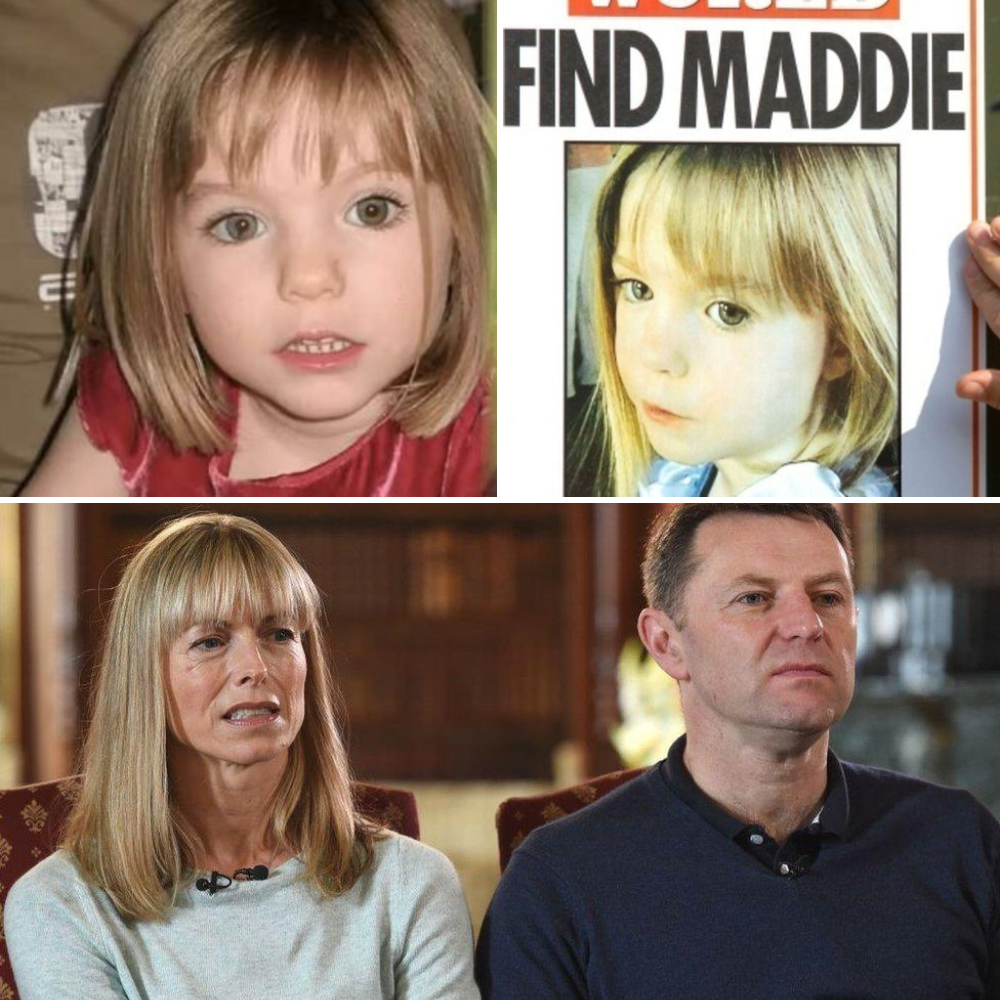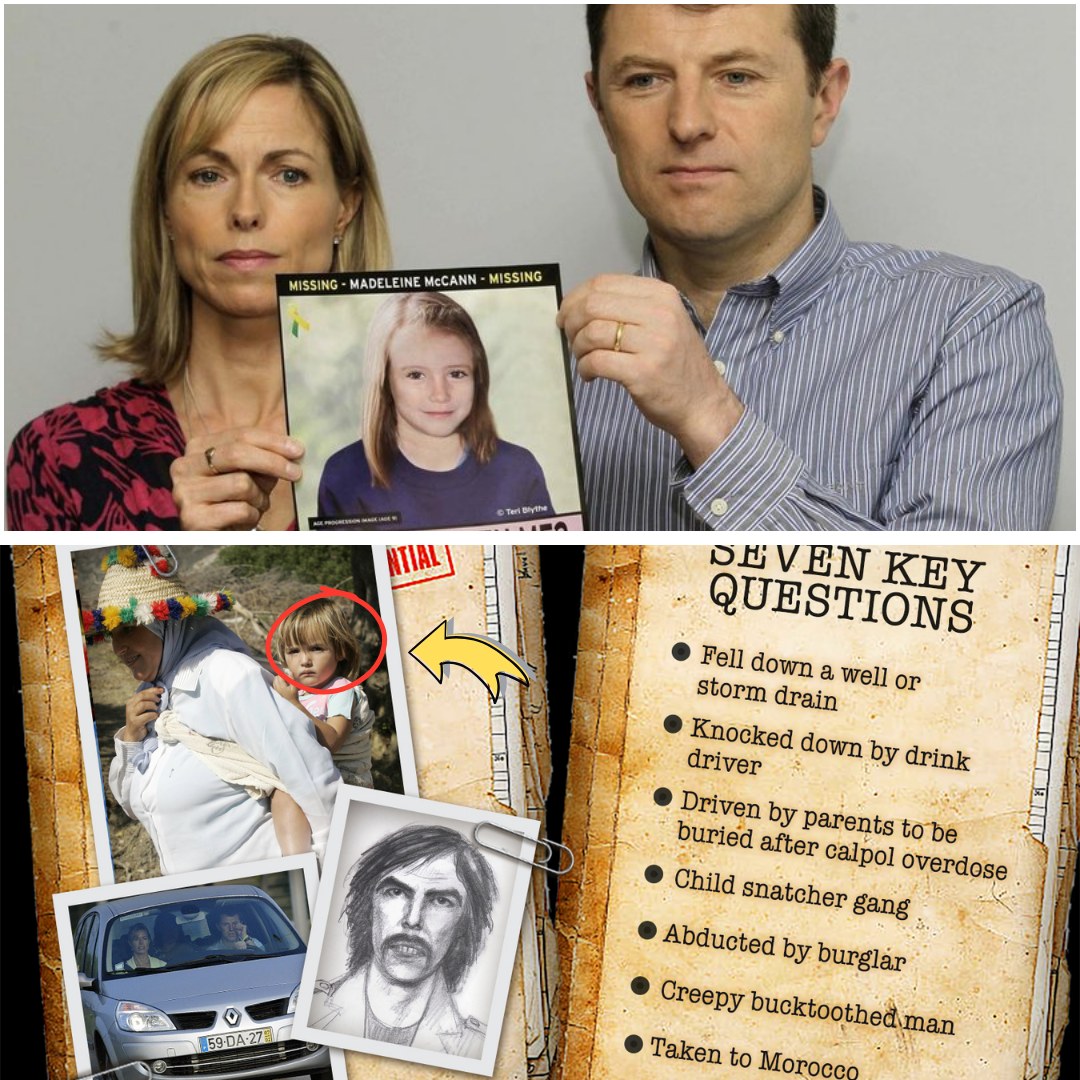
On a warm evening in May 2007, the quiet resort town of Praia da Luz, Portugal, became the epicenter of a global mystery that would captivate millions. Three-year-old Madeleine McCann, a blonde-haired British toddler, vanished from her family’s holiday apartment while her parents, Kate and Gerry McCann, dined with friends at a nearby tapas restaurant. The ground-floor apartment, left unlocked, was just 55 meters away, but when Kate checked on Madeleine and her twin siblings at around 10 p.m., her daughter was gone. What followed was a media frenzy, a sprawling international investigation, and a case that remains one of the most high-profile missing-person mysteries in modern history.
Now, 18 years later, in 2025, the question lingers: is there still hope of solving Madeleine’s disappearance? For Kate and Gerry, the pain of their daughter’s absence is compounded by public scrutiny, accusations, and their own inner turmoil. Will they live forever in the shadow of guilt, or can they carve out a future beyond this tragedy? The latest developments, including fresh searches and a looming suspect’s release, keep the case alive, but the answers remain elusive.
A Case That Refuses to Fade
The disappearance of Madeleine McCann sparked an unprecedented response. Portuguese police, British authorities, and volunteers scoured Praia da Luz in the days following May 3, 2007. Missing posters with Madeleine’s wide-eyed face were plastered across Europe, and her parents made tearful public appeals. Yet, early missteps hampered the investigation. The crime scene was not properly secured, potentially destroying vital forensic evidence. Initial theories ranged from abduction to an accident covered up by the McCanns themselves, a hypothesis that led to Kate and Gerry being named “arguidos” (suspects) by Portuguese authorities in 2007, though they were later cleared.
For 13 years, the case drifted without a clear lead. Theories abounded: Was Madeleine taken by a childless couple? Did she wander off? Was she the victim of an opportunistic crime? The McCanns faced relentless media scrutiny, with some outlets accusing them of negligence for leaving their children alone. In Praia da Luz, locals grew weary of the “McCann circus,” as graffiti once dubbed it, blaming the family for tarnishing the town’s reputation as tourism plummeted.
In 2020, a breakthrough emerged. German prosecutors announced they had “concrete evidence” that Madeleine was dead and named Christian Brückner, a 48-year-old convicted rapist and drifter, as the prime suspect. Brückner, who lived in the Algarve region between 1995 and 2007, had a history of sexual offenses against children and burglaries. His phone records placed him near the Ocean Club resort within 30 minutes of Madeleine’s disappearance, and a 2008 conversation with an acquaintance, Helge Busching, allegedly included a chilling remark: “She didn’t scream.” German authorities classified the case as a murder inquiry, a stark contrast to the British Metropolitan Police’s Operation Grange, which remains open to all possibilities.
The 2025 Search: A Glimmer of Hope?
In June 2025, German and Portuguese police conducted a three-day search across 21 plots of land near Praia da Luz, focusing on derelict buildings and wells close to a ramshackle dwelling where Brückner once lived. Advanced technologies, including ground-penetrating radar and DNA analysis, were deployed, raising hopes of uncovering new evidence. Portuguese police reported collecting unspecified items for testing, and a former senior officer, Jim Gamble, hinted at a significant lead after observing enthusiastic officers during the search. Yet, by the operation’s end, authorities remained tight-lipped, and a conversation with one officer suggested nothing conclusive was found.
The search coincided with a ticking clock: Brückner, currently serving a seven-year sentence for raping a 72-year-old American woman in Praia da Luz in 2005, is due for release in September 2025, or January 2026 if he fails to pay a €1,446 fine. His acquittal in October 2024 on unrelated sexual offense charges has weakened the German prosecution’s case, and prosecutor Hans Christian Wolters admitted in January 2025 that there is “no prospect” of charging Brückner in Madeleine’s case in the near future. If released, Brückner could flee to a country without an extradition treaty, potentially evading justice forever.
Despite these setbacks, the McCanns remain steadfast. In May 2025, marking 18 years since Madeleine’s disappearance, they issued a statement: “Our determination to leave no stone unturned is unwavering.” The Home Office approved an additional £108,000 for Operation Grange in 2025–26, bringing its total funding to over £13.2 million since 2011. The investigation, now led by a small team of detectives, continues to explore new leads, fueled by the family’s refusal to give up.

The Weight of Guilt and Public Judgment
For Kate and Gerry McCann, the past 18 years have been a crucible of grief and public judgment. As doctors from Rothley, Leicestershire, they were thrust into an unforgiving spotlight. Critics argued that leaving Madeleine and her siblings alone, even for brief check-ins, was reckless. Social media platforms like Reddit and X have amplified these sentiments, with some users in 2025 still accusing the McCanns of negligence or even involvement, citing unproven claims about DNA in a rental car or Kate’s refusal to answer certain police questions in 2007. One X post in June 2025 called them “cunts” who should have been prosecuted, reflecting a persistent undercurrent of blame.
The McCanns have acknowledged their regret. In interviews, Kate has described the moment she found Madeleine’s empty bed as a “shock of realization” that turned into “days of panic.” The couple has said leaving the children alone felt safe at the time, akin to dining in their backyard, though they now recognize the risks. Their Find Madeleine Campaign, launched to raise funds and awareness, has faced scrutiny over its expenditures, with some questioning whether the money was used effectively. Yet, the McCanns have poured their lives into the search, maintaining a public presence to keep Madeleine’s face in the news.
The psychological toll is unimaginable. Kate and Gerry have spoken of celebrating Madeleine’s birthdays—she would be 22 in May 2025—while grappling with her absence. They’ve endured false claims, including a Polish woman in 2025 who stalked them, asserting she was Madeleine. The couple’s resilience is evident in their advocacy for missing children worldwide, supporting charities like Missing People and drawing attention to conflicts in Ukraine and Gaza. But the guilt of that fateful decision in 2007 likely lingers, a shadow no resolution may fully dispel.
A Future Beyond the Mystery?
Can Kate and Gerry McCann find a future beyond this tragedy? The answer hinges on whether the case is solved. If Brückner is charged and convicted, or if Madeleine’s fate is definitively uncovered, the McCanns may find closure, though the pain of losing their daughter would remain. A conviction could validate their decades-long fight and silence some critics, allowing them to honor Madeleine’s memory without the burden of an open investigation. Even if Madeleine’s body is found, confirming her death, the McCanns have said they “need to know” to find peace, suggesting that certainty, however grim, could pave the way for healing.
Without resolution, the future is bleaker. Brückner’s potential release in 2025 or 2026 raises the specter of a suspect slipping away, leaving the case in limbo. The McCanns, now in their late 50s, face the prospect of aging with unanswered questions, their lives defined by a single night. Yet, their statements reflect a quiet strength. By celebrating Madeleine’s “special day” and supporting other families, they’ve found purpose in their pain, suggesting a capacity to build a meaningful future, even if incomplete.
Praia da Luz, too, seeks closure. The town’s residents, weary of true-crime tourists snapping selfies outside the Ocean Club, yearn for the case to fade from their identity. A resolution could restore the town’s tranquility, allowing it to reclaim its name from the long shadow of 2007.
Hope in the Face of Uncertainty
Is there still hope for the Madeleine McCann case? The 2025 search, though inconclusive, demonstrates that investigators are not ready to close the book. Advances in forensic technology, from DNA analysis to ground-scanning radar, offer tools unavailable in 2007. The McCanns’ unwavering commitment, backed by ongoing funding, keeps the case alive. Brückner remains a compelling suspect, with disturbing evidence—emails, a hard drive buried under his dog, and a chilling Skype message about capturing “something small”—suggesting a dark connection, even if unproven.
Yet, hope is tempered by reality. Eighteen years have eroded physical evidence, and Brückner’s release looms. German prosecutors’ confidence has waned, and the absence of a smoking gun leaves the case on shaky ground. For Kate and Gerry, hope is a lifeline, but it coexists with the weight of public blame and personal regret. Their future depends on their ability to balance this duality—clinging to the possibility of answers while living with the likelihood that Madeleine’s fate may never be known.
The Madeleine McCann mystery endures as a testament to human resilience and the limits of justice. For the McCanns, Praia da Luz, and a watching world, the search continues, driven by a fragile but persistent hope that one day, the truth will emerge from the shadows.


